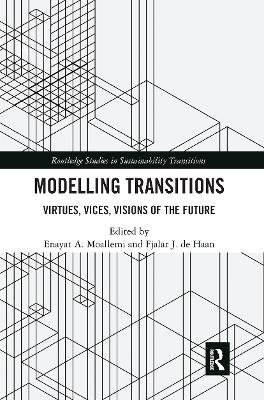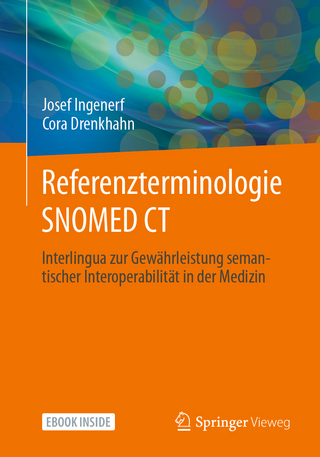
Modelling Transitions
Routledge (Verlag)
978-1-032-23920-0 (ISBN)
Modelling Transitions shows what computational, formal and data-driven approaches can and could mean for sustainability transitions research, presenting the state-of-the-art and exploring what lies beyond.
Featuring contributions from many well-known authors, this book presents the various benefits of modelling for transitions research. More than just taking stock, it also critically examines what modelling of transformative change means and could mean for transitions research and for other disciplines that study societal changes. This includes identifying a variety of approaches currently not part of the portfolios of transitions modellers. Far from only singing praise, critical methodological and philosophical introspection are key aspects of this important book.
This book speaks to modellers and non-modellers alike who value the development of robust knowledge on transitions to sustainability, including colleagues in congenial fields. Be they students, researchers or practitioners, everyone interested in transitions should find this book relevant as reference, resource and guide.
Enayat A. Moallemi is a Research Fellow at School of Life and Environmental Sciences, Deakin University, Melbourne. His research is focused on computational and participatory approaches for modelling socio-ecological systems under the uncertainties of future global change. Enayat's research is applied to a range of areas, such as renewable energies, sustainable mobility, and the Sustainable Development Goals, aiming to advance robust decision-making and adaptive planning. Enayat obtained his PhD from the University of Melbourne, where he worked on model-based energy policy analysis. In his PhD, Enayat developed a theoretical transition framework and an exploratory system dynamics model for investigating future energy transition pathways under uncertainty. Enayat was a visiting researcher at the Faculty of Technology, Policy and Management, TU Delft (The Netherlands) in 2016 and at the Fraunhofer Institute for Systems and Innovation Research ISI in Karlsruhe (Germany) in 2018. Fjalar J. de Haan is a theoretician, developing computational and mathematical approaches for a scientific understanding of transitions to sustainability. Fjalar has an MSc in theoretical physics (Leiden University) and did his PhD on transitions (Erasmus University). He has been exploring the fringe of transitions theory and modelling in a variety of sectoral contexts including health care, urban water management and energy, as part of international, interdisciplinary teams, project based with industry, and in curiosity-driven solo projects. Fjalar currently is Lecturer on Sustainability Transitions at the Melbourne School of Design, The University of Melbourne.
1 Foreword: The Importance of Transitions Modelling
2 Prologue
3 Transitions Modelling: Status, Challenges and Strategies
Part 1: Virtues and Vices
4 Making it a Science: Aspirations and Apprehensions of Transitions Research
5 Modelling and Social Science: Problems and Promises
Part 2: State of the Art
6 Modelling the Multi-level Perspective: the MATISSE Agent-based Model
7 Considering Actor Behaviour: Agent-based Modelling of Transitions
8 System Dynamics Methodology and Research: Opportunities for Transitions Research
9 Socio-technical Representation of Electricity Provision Across Sales
Part 3: The Future of Modelling Transitions
10 Models as Scenario Tools for Developing Robust Transformative Plans
11 Participatory Modelling in Sustainability Transitions Research
12 Data-driven Transitions Research: Methodological Considerations for Event-Based Analysis
13 Exploratory Modelling of Transitions: An Emerging Approach for Coping With Uncertainties in Transitions Research
14 Epilogue: Quo Vadis Transitions Modelling?
| Erscheinungsdatum | 14.12.2021 |
|---|---|
| Reihe/Serie | Routledge Studies in Sustainability Transitions |
| Verlagsort | London |
| Sprache | englisch |
| Maße | 156 x 234 mm |
| Gewicht | 394 g |
| Themenwelt | Informatik ► Theorie / Studium ► Algorithmen |
| Mathematik / Informatik ► Mathematik ► Angewandte Mathematik | |
| Sozialwissenschaften ► Soziologie ► Spezielle Soziologien | |
| ISBN-10 | 1-032-23920-4 / 1032239204 |
| ISBN-13 | 978-1-032-23920-0 / 9781032239200 |
| Zustand | Neuware |
| Haben Sie eine Frage zum Produkt? |
aus dem Bereich


